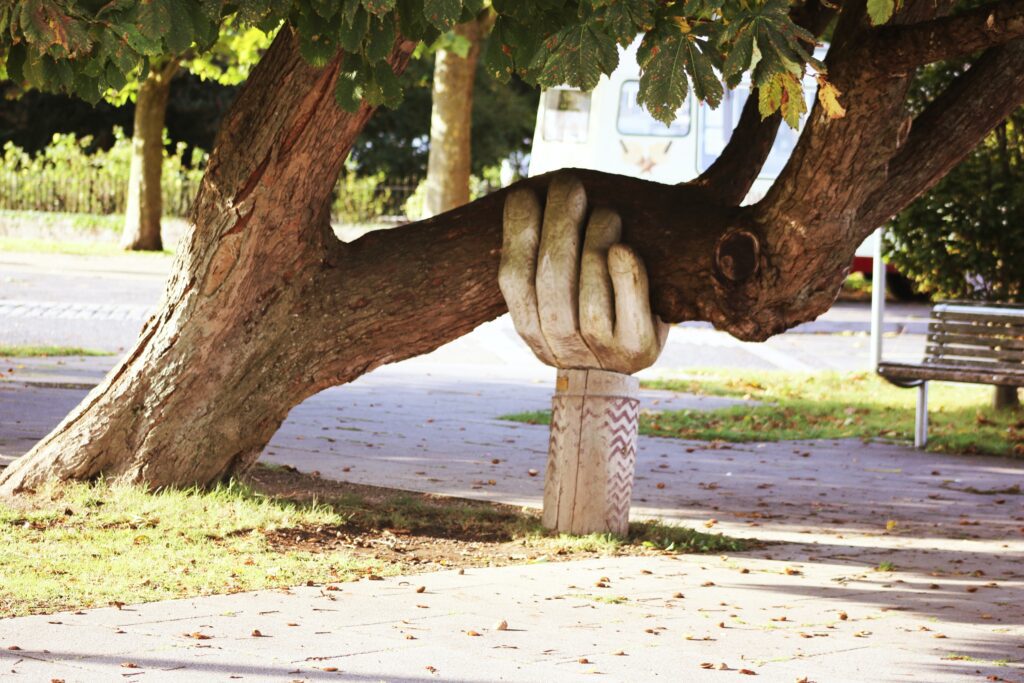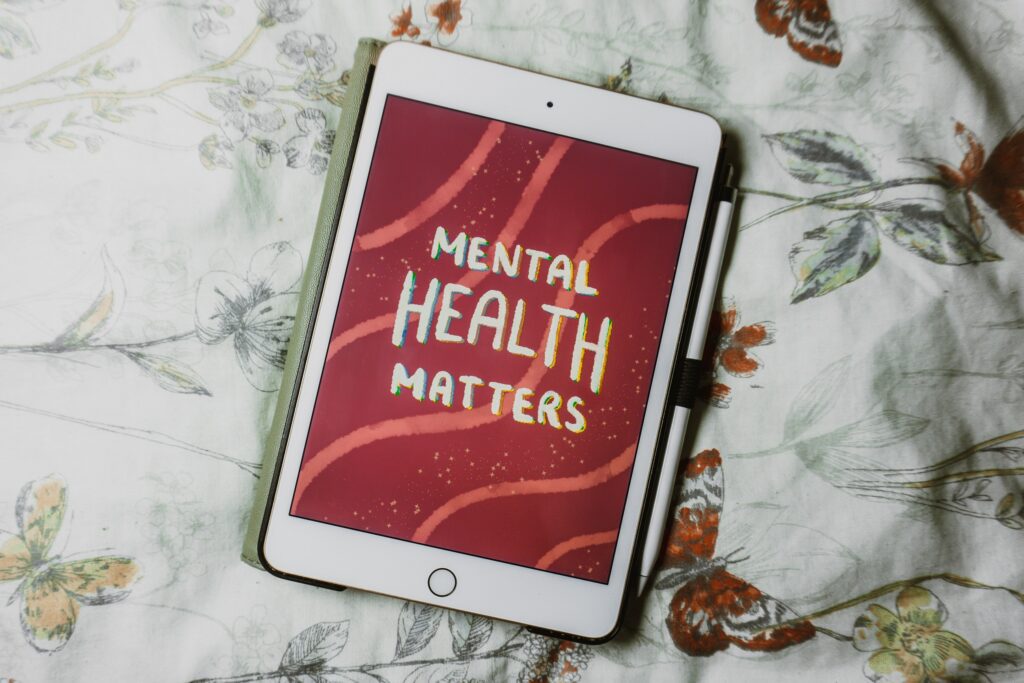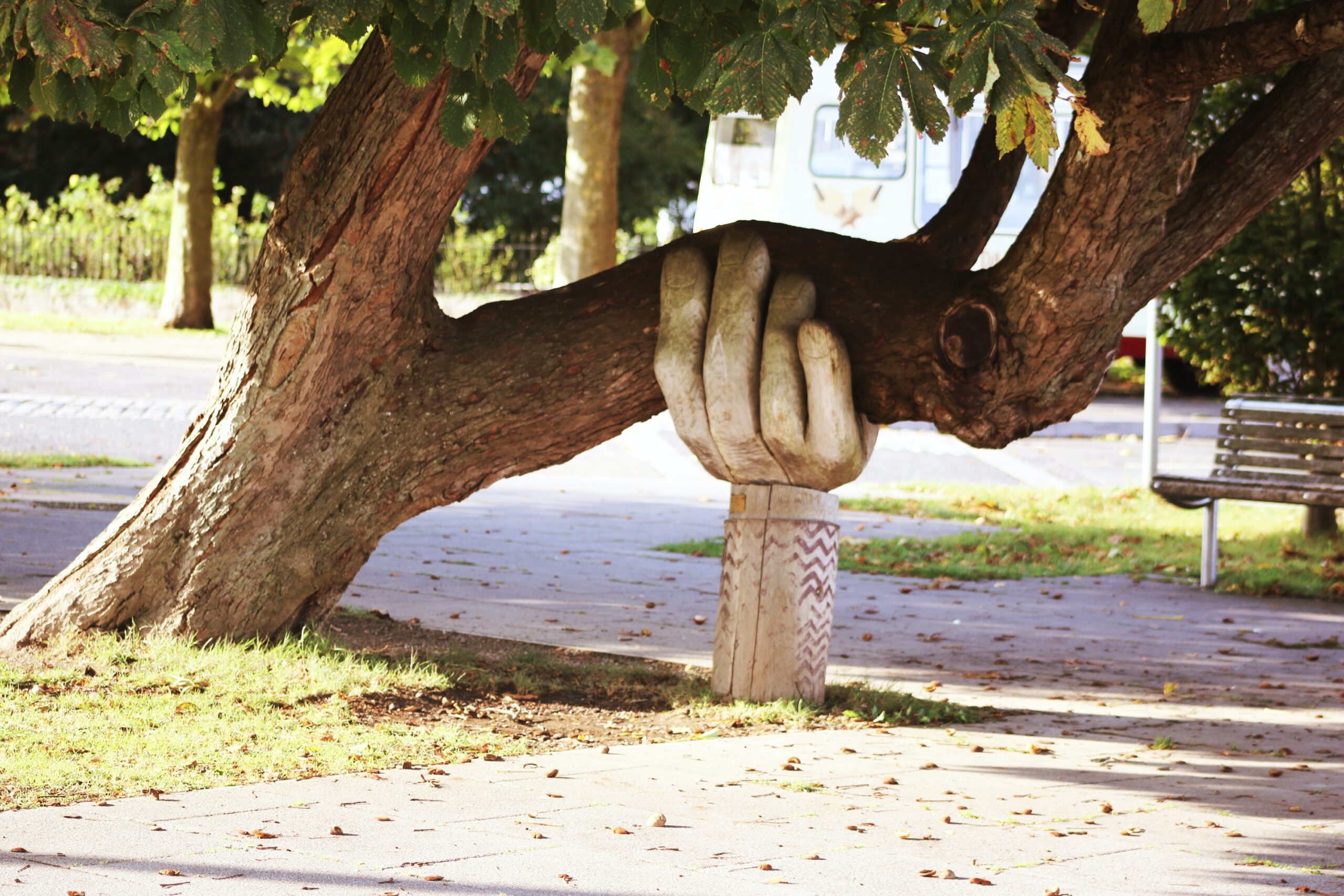Community care matters, because no man is an island and communities are about relationships, trust, and mutual value. But how do you start to create and foster a culture of care in your community?
The concept of community care has been gaining traction recently (including a LinkedIn event on community care, expertly facilitated by Rosie Sherry). In this blog I’ll explain what this important work looks like in practice, and how to foster community care in a way that is healthy and effective.

Why community care matters
Why does care involve community? Because even self care shouldn’t take place entirely in isolation. No man is an island*.
People need connection, companionship, and compassion. They need to feel heard, solve problems, and get answers. That’s why people form tribes, join communities, or create social media profiles. Good social relationships are the most consistent predictor of a happy life (according to research).
What community care looks like
What does community care mean in practice?
The first step in building communities is to not only bring people together, but create an environment where they want to stay together. Communities aren’t just places we go (like a pub or a shopping mall), but places we return to, around a topic of shared interest. They’re places where we give and receive, ask and answer, or talk and feel heard.
Community care happens when we create spaces where people feel they are in a healthy and supportive environment. This will show up differently depending on context (a professional community of practice versus a personal community of circumstance).
We can identify a healthy and supportive environment by how people feel and how they behave. For example, people feel that they are accepted for who they are, they feel able to express themselves (without toxicity or harm), or they have received helpful advice or practical support from others.

Photo by Neil Thomas on Unsplash
Navigating the risks of openness
When we build healthy and supportive communities, where people express support and care for one another, we will see more openness, and an increase in self-expression.
But there are risks that come with this culture of openness. People may share difficult things, including painful or personal information. This could include coming to the community for support in times of personal need or crisis.
Community professionals are helpful people and our roles are about bringing people together and supporting them. We’ll want to do what we can to help our communities.
But that doesn’t mean we’re entirely responsible for them, or for fixing every situation they face. There’s a middle ground to navigate where we offer ENOUGH care and support in the right way, AND know when to signpost or step back.

feels like walking a fine line...
Being intentional about community care
As we grow our communities, we need to be intentional about how and why we care for others. This means that we take time to think about how the community might show support or care, and what it looks like to provide the appropriate amount of care and support.
Tools like a playbook or manual, and tactics like empowering community members can help to create and reinforce a healthy and supportive culture. We could schedule in time to show care for our communities as part of our routines.
But we must also look after ourselves, so we have the energy and focus to do the work of bringing people together. Self care is a key part of how we consistently show up in our roles, and how we can stay effective for the long term by preventing burnout.

The skills involved in community care
Caring for other people is a skillset in itself. This can involve learning about empathic communication, managing emotional labour, or setting healthy boundaries.
This work can take years to learn in its entirety (I know from experience!), but there are techniques and strategies that any community professional can learn in just a couple of hours. This can include how to listen to your community, how to handle issues safely, and how to use empathy.
Want to learn more?
Would you be interested in learning more about how to care for your community, and care for yourself at the same time?
Good Community exists to help all community professionals to thrive (not just in my specialist areas of emotional support and health). I’m keen to determine the topics that would best help you to bring people together effectively, ethically and safely.
Let me know what you’d like to learn about community care and self care by leaving a comment below, or contacting me.
*No man is an island is a famous line written by 17th century poet called John Donne, and Hemingway pinched ‘For Whom The Bell Tolls’ from him too. My English Literature degree comes in useful now and again…
